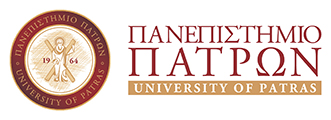Coordinator: Panayiotakis George
Lecturers: George Panayiotakis, John Tsakonas, George Vlachopoulos
Aim and Objectives
The course aims to: (i) familiarize students with the role and duties of medical physicists and the steps required towards professional licence accreditation, (ii) highlight the main stages of a research project, as well as state-of–the-art medical radiation physics research topics and (iii) develop student programming skills to support programming applications and research projects.
Course Content
- Requirements for the acquisition of a Medical Radiation Physicist Licence: Studies, practical training licence, examinations, national, european and international organisations of Medical Physics and Radiation Protection.
- Duties and responsibilities of the Medical Physicist: The Medical Physicist in the public and private sector. The Medical Physicist in theRadiological Department, Nuclear Medicine Department, Radiotherapy Department and Non Ionising Radiation applications. Professional ethics.
- Searching for Scientific literature: Development of critical information skills for searching and evaluating relevant research literature, manage intellectual property rights, searching for the right publication venue, increase awareness on research integrity issues and help to avoid plagiarism risks.
- Main steps required to carry out a research project: Current research issues in Medical Physics-Radiation, defining and formulating the research problem, literature search, study design, instrumentation and apparatus, measurements and data collection, data analysis, conclusions and research ethics.
- Presentation of a topic: oral and poster presentation as well as writing a scientific article.
- Programming skills: development of programming skills to support applications and research projects (MATLAB).
Suggested Textbooks
IAEA, EFOMP, AAPM, IPEM reports
Matlab
Lecture notes
Grading Policy: Projects.

